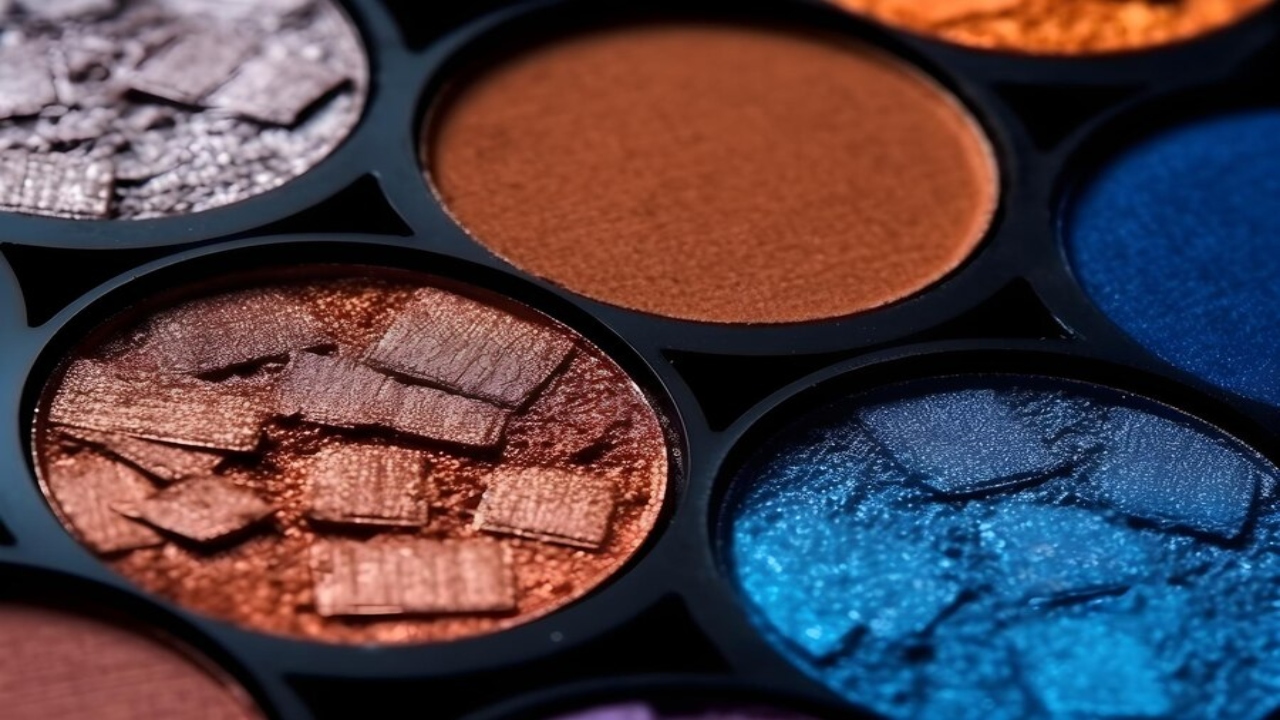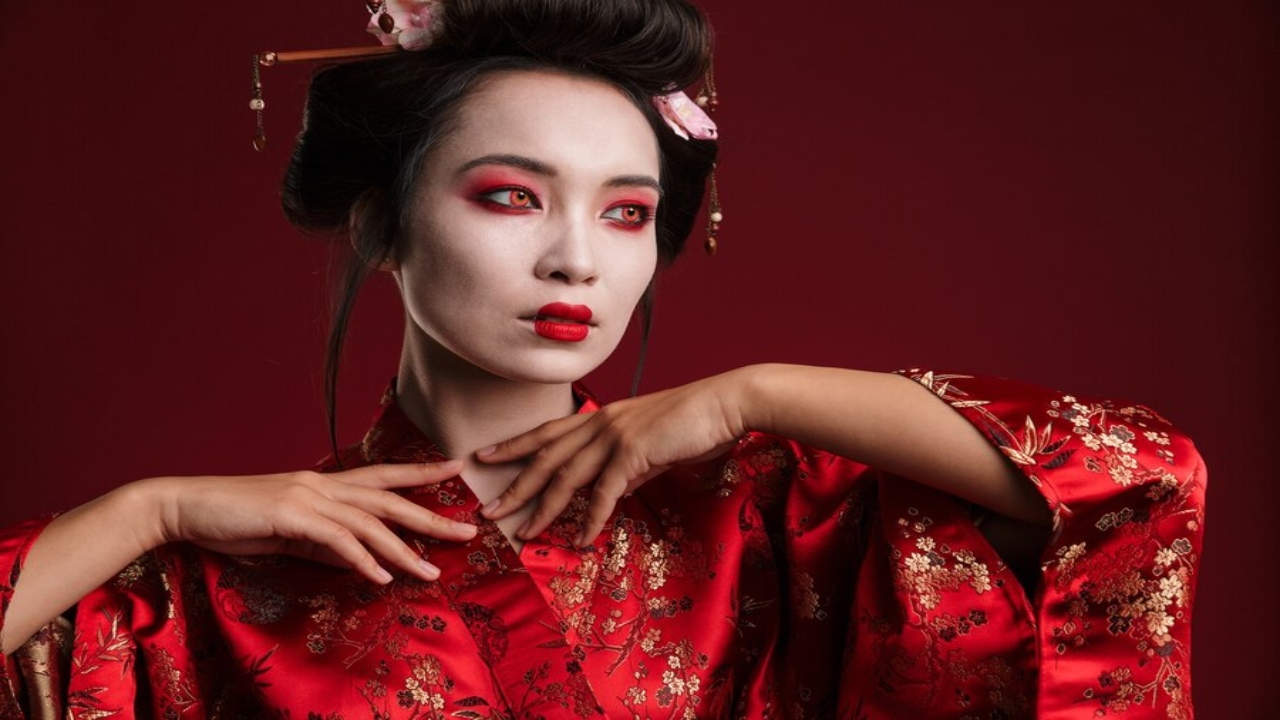Makeup
Talc-Free Setting Powders
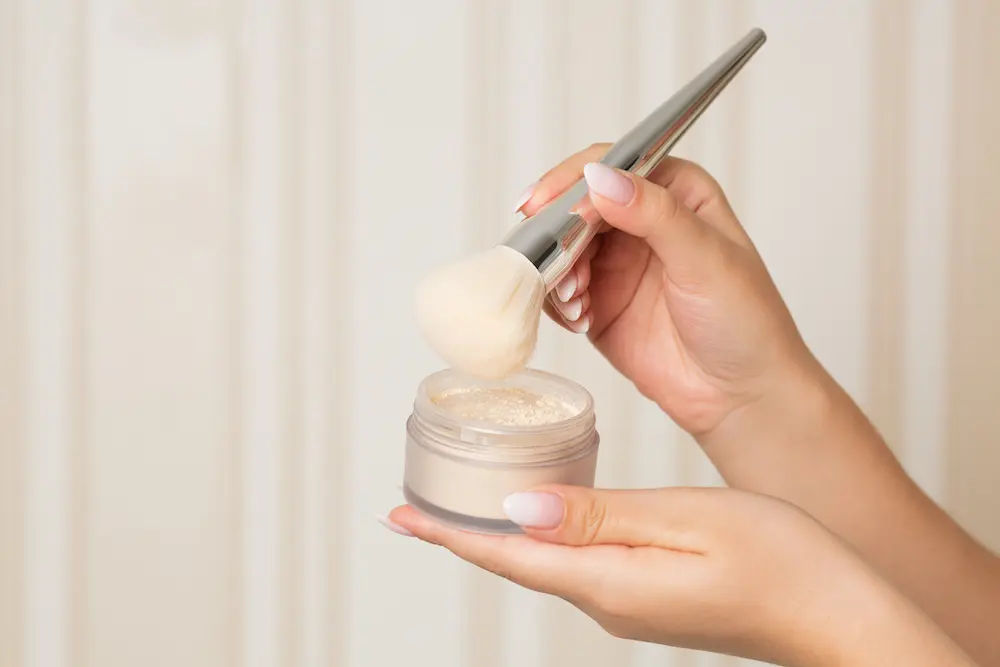
Talc-Free Setting Powders: Setting powders are a basic component of cosmetics that help set your makeup in place, limiting shine and helping to lock in your foundation and concealer. However, have you ever given your setting powder any thought? Talc is a mineral that has sparked health concerns and is present in many conventional options. This article delves into the realm of setting powders without talc, explaining why they’re a better option and showing you how to choose the one that works best for you.
What is Talc?
A naturally occurring mineral consisting of silicon, oxygen, and magnesium is called talc. Because of its ability to absorb moisture and smooth skin, it is frequently used in cosmetics. However because asbestos is a recognized carcinogen, talc has drawn criticism for possible asbestos contamination. This has prompted a movement in favor of talc-free substitutes in cosmetics.
Why Choose Talc-Free Setting Powders?
Health Benefits
You can lessen your exposure to asbestos, a serious health risk, by using setting powders without talc. Talc-free cosmetics are a safer option because even minute levels can be dangerous.
Skin Benefits
Natural components like cornstarch and rice powder, which are kinder to the skin and less prone to irritation, are frequently found in talc-free setting powders. These components may also have calming and hydrating qualities, which are additional advantages for skincare.
Environmental Impact
The environmental impact of your beauty regimen is decreased by the use of eco-friendly chemicals in the formulation of several talc-free setting powders. Selecting goods with ethically produced materials and environmentally friendly packaging helps to save the environment.
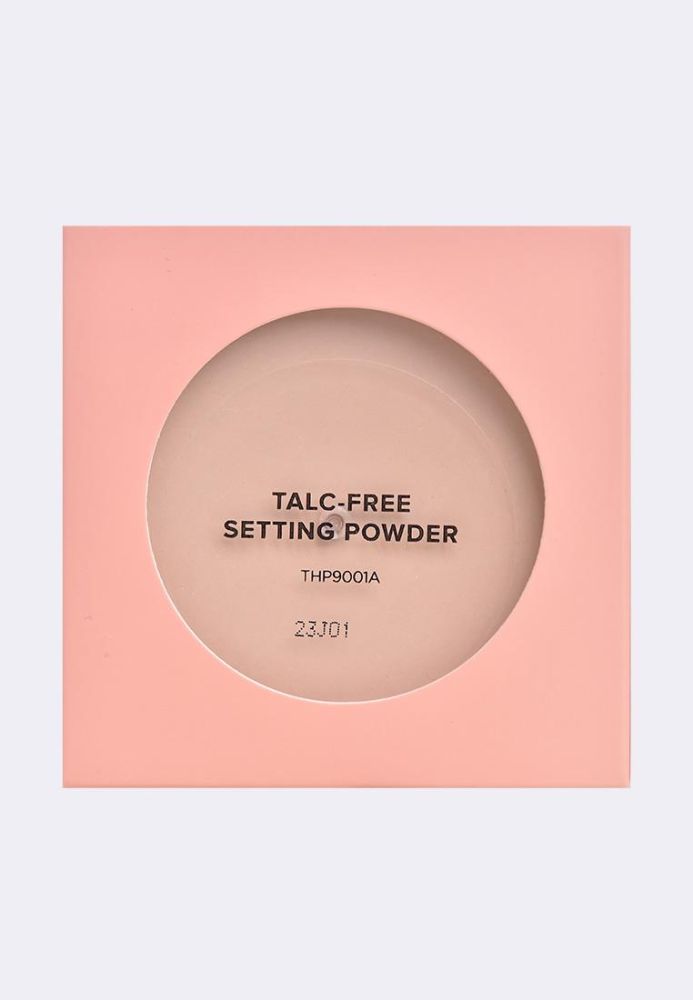
Ingredients to Look for in Talc-Free Setting Powders
Cornstarch
Setting powders without talc frequently contain cornstarch as a component. It gives a flawless finish and efficiently absorbs oil without blocking pores.
Rice Powder
Rice powder is renowned for its smooth texture and ability to absorb oil. It works wonders for taming shine and achieving a matte complexion.
Silica
In order to get a precise finish, silica helps to blur small lines and defects. It fits all skin types and is lightweight.
Kaolin Clay
A mild, natural clay that helps absorb extra oil and cleanse the skin is kaolin clay. For people with sensitive skin or acne-prone skin, it’s ideal.
Top Talc-Free Setting Powders on the Market
Product 1: Overview and Benefits
The ingredients of Brand X Talc-Free Setting Powder, which includes silica and rice powder, provide a smooth, light finish. Its easy application and long-lasting oil management have earned it accolades.
Product 2: Overview and Benefits
Kaolin clay and cornstarch are used in the formulation of Brand Y Mineral Veil Setting Powder. Customers adore how well it sets makeup without seeming cakey and reduces pores.
Product 3: Overview and Benefits
Aloe vera and chamomile are two calming elements in Brand Z Translucent Talc-Free Powder. It gives skin that is sensitive to makeup a natural, matte look.
How to Use Talc-Free Setting Powders
Application Tips
Get Your Skin Ready: Begin by washing and moisturizing your face.
Apply Foundation: Use BB cream or your preferred foundation.
Select the Appropriate Tool: Make use of a cosmetic sponge or fluffy brush.
Assemble Your Cosmetics: Concentrating on the greasy parts of your face, lightly dust the powder there.
Tools Needed
Applying your setting powder with a moist beauty sponge or a premium makeup brush may make a difference.
Best Practices
Less is More: To avoid a cakey look, do not use too much powder.
Mix Well: For a natural-looking finish, make sure the powder is mixed into your skin equally.
Touch Up as Needed: Keep a tiny quantity on hand in case you need to touch up during the day.
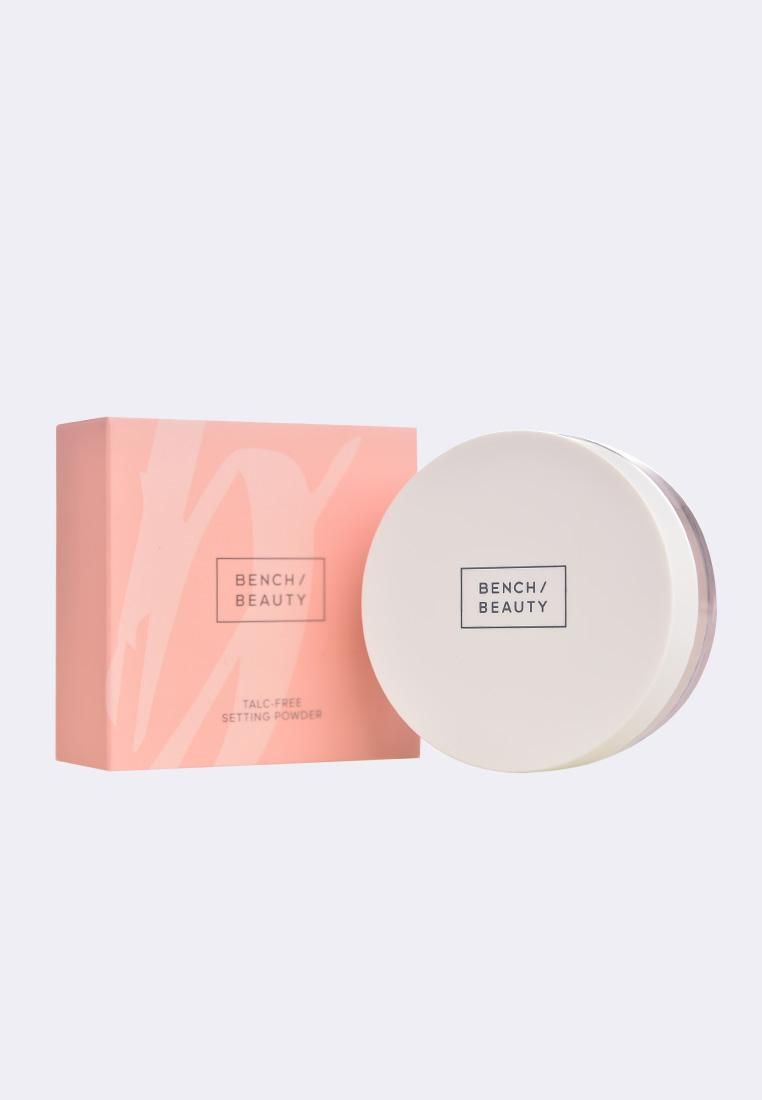
Comparing Talc-Free and Talc-Based Powders
Performance
Talc-free powders perform just as when it comes to adjusting shine and setting makeup, talc-free powders work just as effectively as those with talc in them. ell as talc-based ones in setting makeup and controlling shine.
Texture
Although powders with talc can feel heavy, powders without talc are frequently lighter and more permeable.
Longevity
Long-lasting effects can be achieved with any type, although talc-free powders could need touch-ups, particularly on oily skin.
Common Myths About Talc-Free Powders
Myth 1: They Don’t Perform as Well
Powders without talc work just as well to set makeup and manage shine. Choosing the appropriate product for your skin type is crucial.
Myth 2: They Are More Expensive
While there are some expensive talc-free powders available, many less expensive ones work incredibly well.
Myth 3: They Are Hard to Find
Setting powders without talc is becoming increasingly popular as demand for them grows. They can be found at many stores and online.
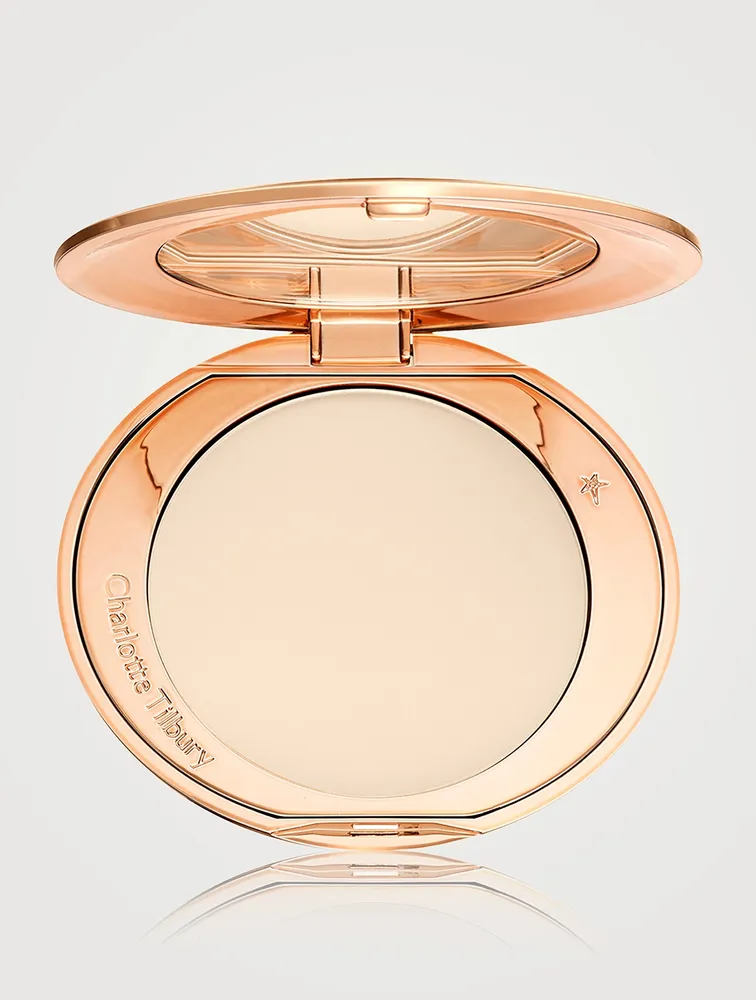
DIY Talc-Free Setting Powder Recipe
Ingredients Needed
- 1/4 cup cornstarch
- 1/4 cup rice powder
- 1 tablespoon kaolin clay
- 1 teaspoon cocoa powder (optional for tint)
Step-by-Step Instructions
Combine Ingredients: In a bowl, mix cornstarch, rice powder, and kaolin clay.
Add Cocoa Powder: To get the right hue with a tinted powder, add cocoa powder little by little.
Shop: Move the blend into a sealed receptacle.
Choosing the Right Talc-Free Setting Powder for Your Skin Type
Oily Skin
Seek for powders that contain silica and kaolin clay, two potent substances that absorb oil.
Dry Skin
Choose powders that have moisturizing ingredients like chamomile or aloe vera.
Combination Skin
The best formulas contain both moisturizing and oil-absorbing elements in a balanced ratio.
How to Transition from Talc-Based to Talc-Free Powders
Steps for a Smooth Transition
Look for powders that don’t include talc that meet your demands.
Test: Use samples to see the reaction of your skin.
Change out Slowly: Gradually add talc-free powders to your regimen.
What to Expect
Although it may take some time for your skin to acclimate, you should experience advantages including less irritation and a more natural finish.
Customer Reviews and Testimonials
Real-Life Experiences
After converting to talc-free powders, many users say they can see an improvement in the health and appearance of their skin.
Popular Opinions
Setting powders without talc are a favorite among beauty lovers because of their natural finish and lightweight feel.
Frequently Asked Questions
What is a setting powder?
To set makeup, lessen shine, and extend the wear of concealer and foundation, apply a setting powder.
Is talc bad for your skin?
If talc is contaminated with asbestos, a known carcinogen, it may be dangerous. Alternatives without talc are thought to be safer.
How do I apply setting powder correctly?
Dust the powder on your face sparingly, paying special attention to greasy spots, using a soft brush or moistened sponge.
Can I make my setting powder?
You can make your homemade talc-free setting powder using basic items like cornstarch, rice powder, and kaolin clay.
Makeup
Unlock the Power of Pigment Makeup: A Bold Beauty Revolution
Makeup
Makeup in Chinese Culture: A Journey Through Tradition and Modern Trends
Makeup
Jouer Makeup: Redefining Beauty with Elegance and Innovation
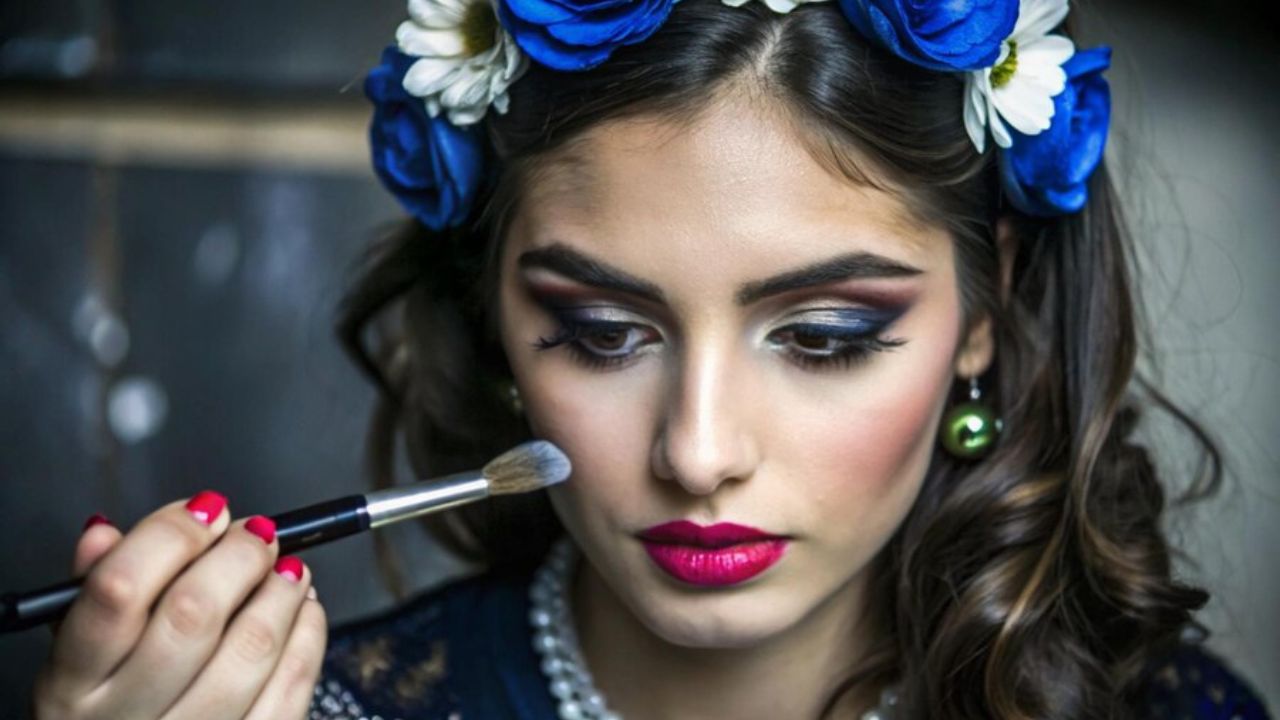
The beauty industry constantly evolves, with new brands emerging every day, but Jouer makeup has captured the attention of makeup lovers around the world. With its luxurious formulas and innovative packaging, Jouer stands out in a crowded market. From cruelty-free products to its minimalist yet elegant aesthetic, the brand offers a perfect balance of beauty and functionality. In this article, we explore what makes Jouer makeup a must-have for beauty enthusiasts who seek both quality and style.
The Origins of Jouer Makeup
Jouer, which means “to play” in French, was founded by Christina Zilber in 2008. Zilber’s vision was to create a makeup brand that combined timeless elegance with a playful approach to beauty. She wanted her products to be as fun to use as they were beautiful to look at, focusing on wearable, buildable makeup that could suit all skin tones and types. Jouer makeup was born out of a love for beauty that’s practical yet luxurious.
Since its launch, the brand has maintained a focus on creating high-quality, cruelty-free, and inclusive makeup. This attention to detail has garnered it a loyal following, with fans raving about the brand’s ability to merge fun and sophistication in every product.
What Sets Jouer Makeup Apart from Other Brands?
One of the standout qualities of Jouer makeup is its commitment to cruelty-free products. In a world where consumers increasingly seek ethical beauty options, Jouer positions itself as a leader in this space. The brand ensures that all its cosmetics are free from animal testing, appealing to conscious consumers who care about the impact of their beauty choices.
Jouer makeup is also known for its high-performing formulas. Whether it’s the smooth application of their foundation or the long-lasting wear of their lip products, Jouer delivers every time. The brand is particularly well-known for its signature Lip Enhancer, a luxurious treatment that hydrates and plumps the lips without the use of harsh chemicals.
Additionally, Jouer stands out for its stunning packaging. The brand offers modular packaging that allows users to customize their makeup palettes, making it both practical and visually appealing. This unique design feature adds an element of personalization to every product, allowing consumers to create a makeup routine that truly feels like their own.
Jouer Makeup’s Best-Selling Products
Jouer makeup has a range of standout products, but there are a few that have become cult favorites in the beauty world. Here are some of Jouer’s most beloved offerings:
Jouer Lip Enhancer
The Jouer Lip Enhancer is arguably the brand’s most iconic product. This nourishing lip balm is formulated with a blend of Vitamin E, Shea Butter, and Jojoba Seed Oil. The result is a product that deeply hydrates and soothes the lips while providing a subtle, natural shine. Fans of the Lip Enhancer love its ability to smooth fine lines and keep the lips moisturized throughout the day. It’s a must-have for anyone seeking a luxurious yet functional lip treatment.
Essential High Coverage Liquid Concealer
The Essential High Coverage Liquid Concealer has become a favorite among beauty enthusiasts for its lightweight yet full-coverage formula. Infused with skincare ingredients like Hyaluronic Acid and Resveratrol, this concealer not only covers imperfections but also nourishes the skin. It’s designed to blur the appearance of fine lines, dark circles, and blemishes while maintaining a natural finish. Jouer makeup users praise this product for its long-lasting wear and crease-free finish.
Blush Bouquet
Jouer’s Blush Bouquet duo features two complementary shades in one compact. The finely-milled powder blends seamlessly onto the skin, giving cheeks a natural flush of color. Each palette contains a matte and shimmer finish, allowing users to create both soft and radiant looks. The blush’s buildable formula makes it versatile for any occasion, from a subtle daytime look to a more dramatic evening appearance.
Jouer Essential Lip Enhancer Shine Balm
Expanding on the popularity of the Lip Enhancer, Jouer created the Essential Lip Enhancer Shine Balm. This tinted balm provides the same hydrating benefits of the original Lip Enhancer but with the added bonus of sheer color. It’s available in several shades, from soft nudes to bold berry hues, making it easy to find the perfect match for any skin tone.
Soft Focus Hydrate + Set Powder
One of Jouer makeup’s best-kept secrets is the Soft Focus Hydrate + Set Powder. This silky, lightweight powder sets makeup in place while keeping the skin hydrated. Infused with Hyaluronic Acid, the powder creates a soft-focus effect, blurring the appearance of pores and fine lines. Its breathable formula makes it suitable for all skin types, ensuring that makeup stays flawless throughout the day.
The Clean Beauty Movement and Jouer Makeup
As the demand for clean beauty continues to grow, Jouer makeup has embraced this trend by creating products that prioritize both skin health and beauty performance. Jouer understands that consumers are not only looking for high-quality makeup but also cosmetics that are safe for their skin. The brand incorporates skin-friendly ingredients into its formulas, reducing the use of potentially harmful chemicals while still delivering luxurious, effective results.
Jouer makeup also takes a minimalist approach to ingredients, ensuring that every component serves a purpose. By avoiding unnecessary fillers, the brand is able to create products that perform exceptionally well without compromising on quality or safety.
Jouer’s Commitment to Inclusivity
Jouer makeup has always been committed to creating products that work for all skin tones. The brand offers an extensive shade range in its complexion products, ensuring that everyone can find their perfect match. This inclusivity is evident in Jouer’s foundation and concealer ranges, which cater to a wide variety of undertones and shades.
In addition to offering a diverse range of products, Jouer consistently promotes body positivity and diversity in its marketing. The brand celebrates beauty in all its forms, using models of different ethnicities, ages, and body types in its campaigns. This commitment to inclusivity has endeared the brand to consumers who appreciate seeing themselves represented in beauty advertisements.
Jouer’s Seasonal and Limited-Edition Collections
Jouer makeup is known for releasing beautifully curated seasonal and limited-edition collections. These collections often feature new shades and innovative formulas, appealing to both loyal fans and new customers. Jouer’s holiday collections, in particular, are highly anticipated, often selling out quickly due to their luxurious packaging and exclusive product offerings.
These limited releases provide the perfect opportunity for makeup lovers to experiment with new colors and textures. Each collection is thoughtfully designed, ensuring that the products are not only on-trend but also versatile enough to be worn year-round.
Why Jouer Makeup Appeals to Professional Makeup Artists
Many professional makeup artists turn to Jouer for its reliable, high-performing products. The brand’s complexion products, in particular, are known for their ability to create a flawless base that lasts throughout the day. The Essential High Coverage Crème Foundation and Concealer are favorites among pros who need products that provide full coverage without looking cakey or heavy on the skin.
Jouer’s powder formulas, including the Soft Focus Hydrate + Set Powder, are also popular with makeup artists for their ability to create a smooth, airbrushed finish. The brand’s versatility makes it a go-to for professionals who need makeup that looks stunning both on camera and in real life.
Sustainability and Ethical Practices at Jouer Makeup
In addition to being cruelty-free, Jouer makeup strives to reduce its environmental footprint. The brand makes a conscious effort to use recyclable materials in its packaging and works with manufacturers who follow sustainable practices. While luxury packaging is an essential part of the brand’s identity, Jouer ensures that its products are as environmentally friendly as possible.
Consumers are increasingly looking for brands that align with their values, and Jouer makeup delivers by offering a blend of luxury and responsibility. This commitment to ethical practices sets Jouer apart in the competitive beauty market.
Conclusion
Jouer makeup has carved out a special place in the beauty industry by offering luxury products that are both ethical and high-performing. From its iconic Lip Enhancer to its full-coverage concealer, the brand continues to innovate while staying true to its original vision of combining elegance with playfulness. Whether you’re looking for cruelty-free makeup that delivers professional results or simply want to indulge in beautiful packaging, Jouer makeup offers a range of products that cater to every need. As the beauty industry evolves, Jouer remains a brand to watch, consistently delivering on its promise of luxury, inclusivity, and quality.
FAQs
Where can I purchase Jouer makeup?
You can buy Jouer makeup from their official website or from major beauty retailers like Sephora.
Are Jouer products vegan?
Most of Jouer makeup’s products are vegan, but be sure to check individual product listings for detailed information.
Is Jouer makeup suitable for sensitive skin?
Yes, Jouer makeup uses skin-friendly ingredients and avoids harsh chemicals, making it suitable for sensitive skin.
How long does Jouer makeup last?
Jouer products are long-wearing, with complexion products providing lasting coverage throughout the day.
Does Jouer test on animals?
No, Jouer makeup is a cruelty-free brand that does not test any of its products on animals.
Is Jouer makeup gluten-free?
Many of Jouer’s products are gluten-free, but check specific product information to ensure it meets your needs.
-
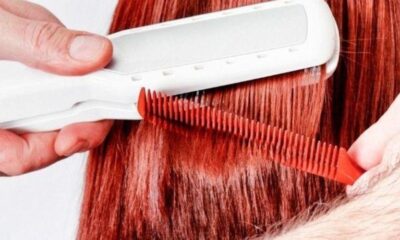
 Hair8 months ago
Hair8 months agoDoes a Flat Iron Kill Lice? Fact or Myth?
-
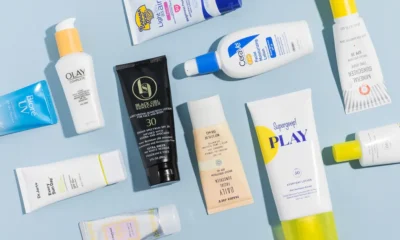
 Skin8 months ago
Skin8 months agoNatural Oil-Free Face Moisturizer Reviews & Buyers Guide
-
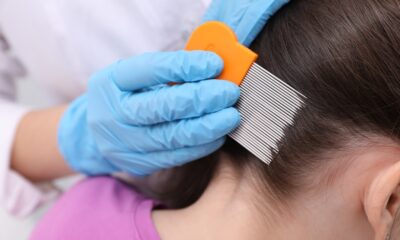
 Hair8 months ago
Hair8 months agoDoes a Flat Iron Kill Lice? Fact or Myth?
-
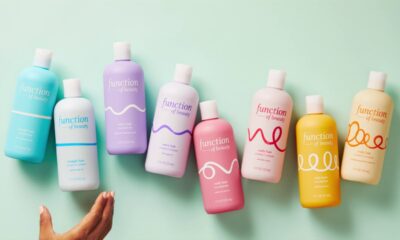
 Hair8 months ago
Hair8 months agoFunction of Beauty: Personalized Hair Care for Your Unique Needs
-
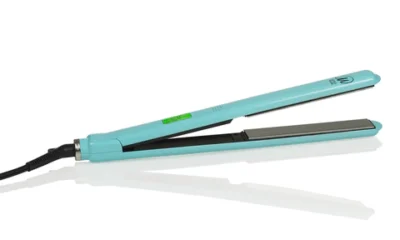
 Hair8 months ago
Hair8 months agoTitanium Flat Iron vs. Ceramic
-
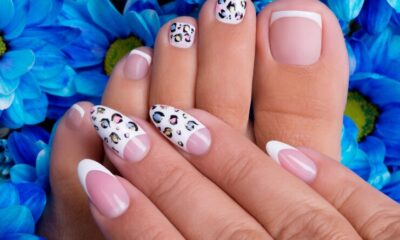
 Skin7 months ago
Skin7 months agoBeautiful Nails: Tips and Tricks for Healthy and Gorgeous Nails
-
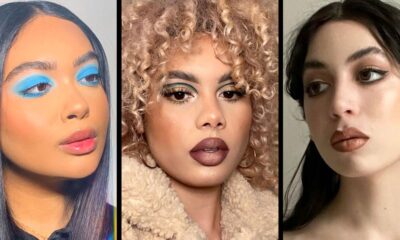
 Skin7 months ago
Skin7 months agoAbout Face Beauty: Tips for Enhancing Your Natural Beauty
-
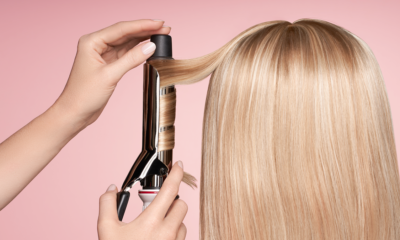
 Hair8 months ago
Hair8 months agoHow to Curl Your Hair with a Flat Iron for Beginners

